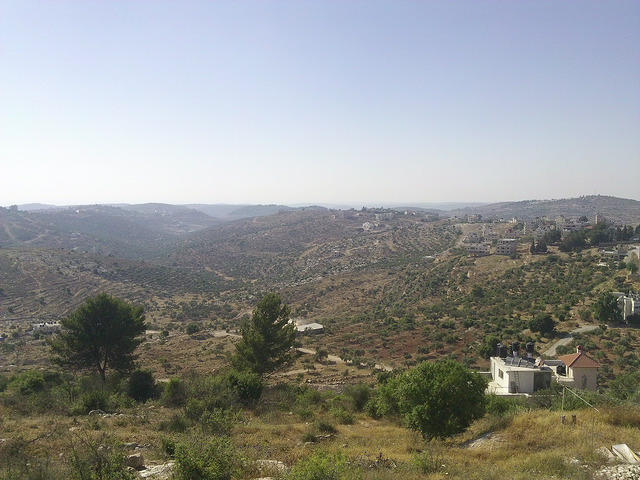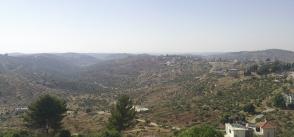
Every drop counts
The Palestinian territories suffer from a shortage of water. GIZ is helping local institutions to make better use of what little water there is.
Naim Ghazawi stands outside Birzeit University on the West Bank looking skywards. He is hoping for clouds. It has not rained here for eight months. The 54-year-old engineer with a friendly countenance and cropped grey hair is in charge of the municipal sanitation department in Jenin, a Palestinian city of 65,000 inhabitants in the northern West Bank. It gets roughly the same amount of rainfall as Berlin, but only in autumn and winter – the summer months here are hot and dry. Fields and gardens have to be watered if anything is to grow here. Without irrigation, only olive trees survive on the barren hillsides of the West Bank.
Ghazawi has joined twelve other Palestinian engineers and technicians for a weeklong training course at Birzeit University. Here they will learn how to improve wastewater management in their municipalities. The issues they will deal with are practical in nature: how to maintain pipes and pumps, how best to connect a house to water and sewage networks, how to clean blocked drains. These are pressing problems. ‘Although Jenin has a wastewater treatment facility, it doesn’t work properly,’ says Ghazawi. His municipality is better off than most. ‘But the sewage plant only takes wastewater from two thirds of the city. The rest goes back untreated into a valley. The sewage pipes themselves are old and many of them leak. They are also too small in diameter, which means that dirty water regularly spills out of the culverts into the streets. That happens mostly in winter when it rains,’ the engineer explains.
Read the full article by Uta Rasche via akzente | the GIZ magazine.
[Photo by Pierre Marshall | Flickr]







